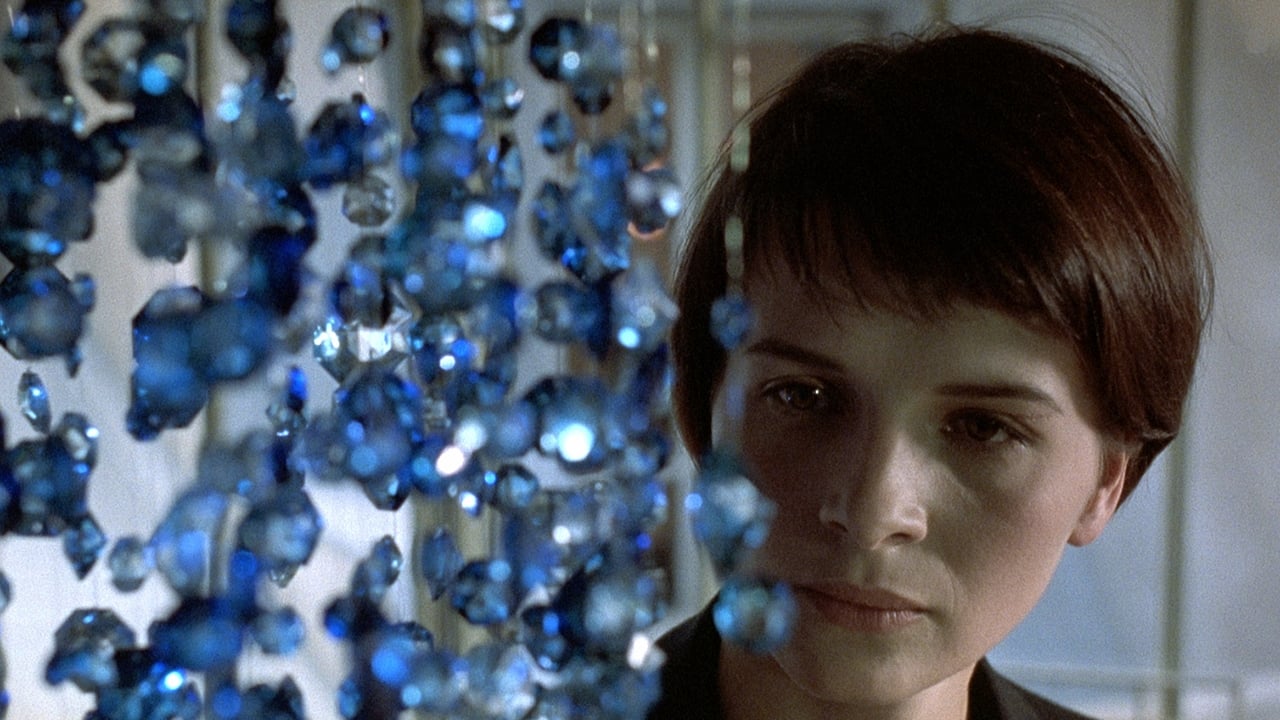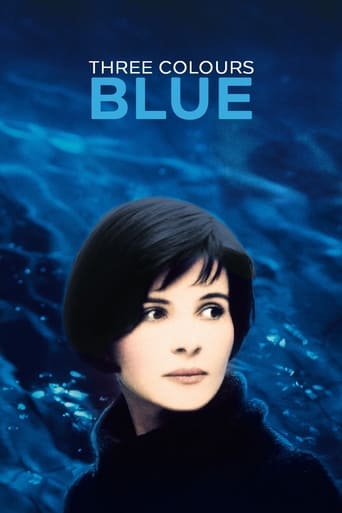Inclubabu
Plot so thin, it passes unnoticed.
Afouotos
Although it has its amusing moments, in eneral the plot does not convince.
FuzzyTagz
If the ambition is to provide two hours of instantly forgettable, popcorn-munching escapism, it succeeds.
Livestonth
I am only giving this movie a 1 for the great cast, though I can't imagine what any of them were thinking. This movie was horrible
ivan_dmitriev
A 6/10 only because of the color work, however the rest of it has visually aged - overlong pointless shots, overly insistent blaring "sad" music, blacking out of the screen - supposed to represent the emotional state, however when you have a unemotional dummy of the caliber of Binoche, who could win a contest for the female equivalent of "best show of emotions" since Steven Segal and Keanu Reeves, then not even blacking out of the screen can save you.Overal - an unreal imaginary story - seriously - giving away your house to your husband's mistress just because she has a child, in France - sorry, but french people are accountants and engineers - they would kill themselves before they give so much as a pence to a person who has, especially by the tacit French morality, no claim whatsoever on that money - set in unreal imaginary France ,going as far as to swim out of lanes in a public pool - we get it, Mr. Director, Julie is a "rebel" who arranges her own life, in the face of nonexistent social opposition to her rearranging the said life, who refuses convention, by being conventionally rebelious, but NO swimming pool in Paris will allow you to swim like that - you'll get ejected and banned for life.Also in immediately selling and throwing away all the deceased's possessions she, and thus the director, is following the convention of "healthy grieving"- that is the absence of grieving of the 90ies to the tee. So much for the rebeliousness!Second - I have an issue with Julie being sad because her husband died - that is no mention of her (presumably) child, while hers being a clearly dysfunctional family clearly on the road to divorce. In the end - it's just not believable and there is nobody (except "the whore", and as an aside - thanks social development that we, at least in most of the developed world, moved away from prying into people's private lives to the point of actually causing them harm in their public lives), who has any, ANY appeal in this story.If you like the pretence of style over Substance of Camus' "Stranger" you will like that movie, or if you like an unintentional comedic jumpscare horror with 2 creepface men and 1 resting assface woman as a protagonist - this movie is for you, for the rest - avoid and watch modern American drama.Sadly in this movie I feel I can see the beginning of the fall of the European cinema from making movies close to life, to being just another socialist Soviet Union cinema which exists solely because it's funded by the government and the "cultivated" class through lobbying.
Hitchcoc
This film is about the most raw of emotions, grief from great loss. In an opening scene, the brakes go out on a car, ridden in by Juiette Binoche, the result of which is the loss of her composer husband and her young daughter. We now focus on her attempted recovery which begins with a suicide attempt. Once out of the hospital, she wallows in grief. She obviously has the funds to go on which allows her to drop out of her previous world. Her husband had been respected all over the world for his work, but it is implied that she had as much to do with the work as he did. One of her husband's associates (who has loved her and sleeps with her one evening) wants to finish the master's final composition. She destroyed a copy earlier, but it resurfaced as a copy in his desk at his workplace. As she tries to get direction, she finds out deep secrets that were kept. She has a relationship with an exotic dancer in a sex club. There are rather obvious scenes of her swimming alone, going into the depths of the water and coming out. This is quite an intense, but superbly quiet film.
SnoopyStyle
This is the first of Krzysztof Kieślowski's colors trilogy. Blue is Liberty. Julie de Courcy (Juliette Binoche) survives a car crash which killed her husband Patrice and her daughter. Patrice is a famous composer who was commissioned to produce a piece for European unity. Julie tries to commit suicide and then escape from the glare of her former life. She befriends exotic dancer Lucille. An old friend Olivier is also a composer and suspects the composition is actually Julie's. Patrice had a mistress. Julie has to break out of her darkness. Kieślowski uses everything including color, silence, music and most importantly Binoche infusing this with meaning. This is very much an art-house film and may not be for everyone. The quietness does lower the intensity. It's slow and meticulous. There isn't much of a plot. It's all about Julie's darkness and the reveal that can break through.
Turfseer
This is the first film in Polish director Krzysztof Kieślowski's Trois couleurs trilogy based on the French Revolutionary ideals of liberty, equality, and fraternity. The high point is Sławomir Idziak's sumptuous cinematography and when all is said and done, 'Blue' is a fine film to look at. But in terms of story, it's also a slow-moving affair and if you don't have a lot of patience, you might find the narrative an exercise in unfortunate ennui.Juliette Binoche plays 'Julie' whose famous composer husband and young daughter are killed in a car accident at the beginning of the film. Totally shattered, Julie first attempts suicide but can't go through with it. Instead, she decides to withdraw from life by putting up her home for sale, place her Alzheimer's afflicted mother in a nursing home and renting an apartment in Paris without telling any of her friends and family. She also destroys her husband's unfinished musical score (commissioned to promote European unity), which she may have actually composed herself.The main question we're left with (as robot-like Julie makes her way through her self-imposed life in exile) is, when will she come out of it? Along the way, however, she's determined to prove that she can go through life with all her emotions deadened, as a sort of impotent protest against the cruel fate bestowed upon her. Hence, when Olivier, a former composer colleague who's in love with her, finally finds out where she's moved to, Julie has sex with him and then cruelly tells him never to see her again. And then there's all those scenes swimming in the pool—we hear the booming sound of the unfinished symphony impinging on Julie's consciousness. This obviously signifies her inability to repress her emotions completely.Kieślowski argues that in the mourning process there comes a point where demands for kindness in ordinary life must intrude on the mourner's determination to maintain their inflexible stance of anger and denial. Case in point: Julie answering exotic dancer's Lucille's call for help when her father shows up at the strip club. Or Julie deciding not to hold a grudge against Sandrine, her husband's mistress, by allowing her and the new baby, to live in her family's home. While Julie probably is still not overjoyed by Sandrine's actions, this is her way of 'moving on', and also acknowledging that she must help the baby, which belongs not only to Sandrine, but to her late husband as well.Julie finally breaks out of her shell by getting involved with Olivier. At the denouement, Olivier gives Julie the ultimatum about the unfinished score (a copy turns up preserved)—he'll complete it with all its 'roughness' or Julie will take over completely, but admit to current and past authorship. But Julie's decision is ambiguous in terms of who takes credit—what's important is that she's involved in collaborating and is no longer alarmingly self-absorbed. As the presumed completed symphony plays, we see shots of the various individuals who Julie touched, in spite of her self-defeating but thankful short-term exile. And the housekeeper who earlier cries for Julie because she's unable to mourn, can now rest assured that Julie is finally beginning to cry herself.Part of the 'Blue' problem is that there is no external conflict going on. The conflict exists solely in Julie's mind. The characters that impinge upon her are not developed in great detail—they exist as a catalyst for Julie's recovery. There's also the natural tendency to feel sympathy for a character that has experienced an unfathomable tragedy. Nonetheless, Julie's recovery is rather predictable and I'm not convinced that explorations of the mourning process in itself, should really be the subject of a full-length feature film. On the other hand, if you're a patient film goer, the film's visual palate, is worth the price of admission.

